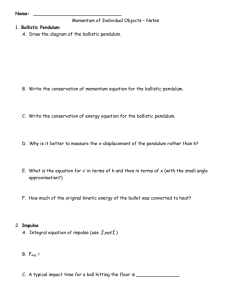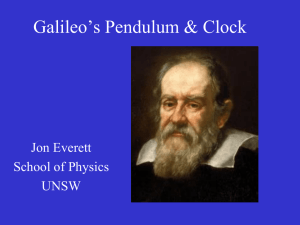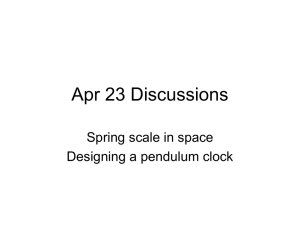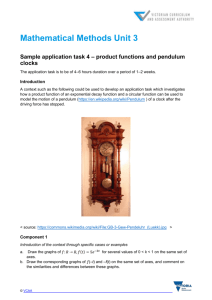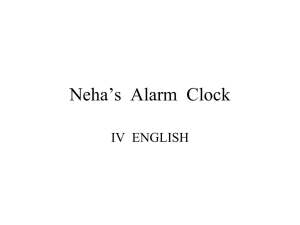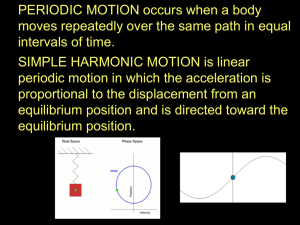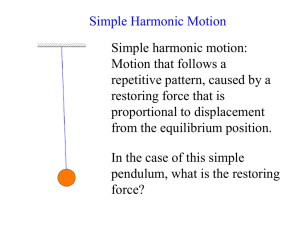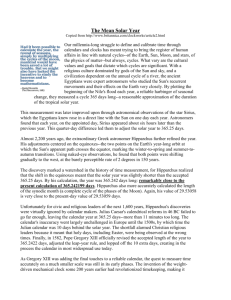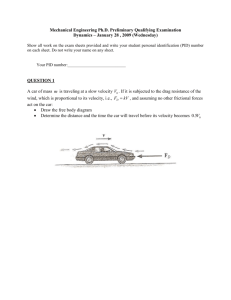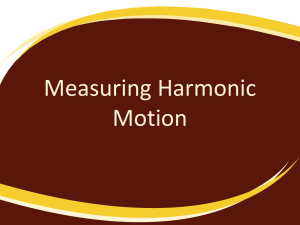ppt
advertisement
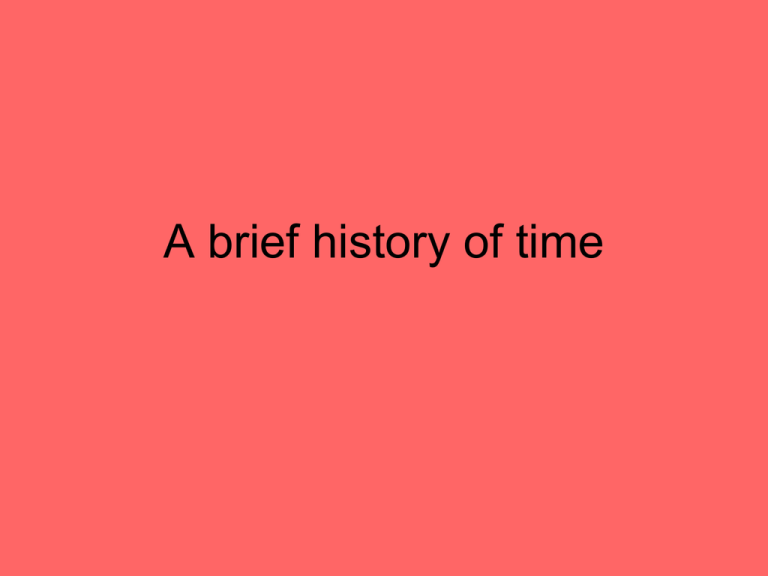
A brief history of time From last time: Augustine and time • • • • Time as the dramatic marker of being human Several ways to conceptualize time: The ‘time-lessness’ of God The time of humans ‘thrown’ in time, something that cannot be fully comprehended and that connects the inside/outside • The measuring of time does NOT mean understanding time, but as humans this is an important thing to do • Today: let us talk about measuring time, a distinctively HISTORICAL question Starting to measure time: the sun clocks (starting since around 3500 BCE) Athanasius Kircher’s sunclock 11th Century in China: SuSung’s clock (waterclock) 14th century Europe: church-clocks, mechanical, no minutes Clock in the Salisbury Cathedral, 1386 Galileo and Huygens: the study of the pendulum Christian Huygens and the pendulum clock (ca. 1650s) • The pendulum swings left and right, and as it swings, it turns a wheel with teeth. The turning wheel turns the hour and minute hands on the clock • On the first pendulum clocks, the pendulum used to swing a lot (about 50 degrees). As pendulum clocks were improved, the pendulum swung a lot less (about 10 to 15 degrees) • The first pendulum clock with external batteries was developed around 1840. By 1906, the batteries were inside the clock Pendulum clock Pocket-Watch: 17th century Netherlands • Pieter Claesz (ca 1597-1660), ‘Vanitas’ • Willem van Aelst, (ca 1627-post 1683), still life So… • So far we have seen the linear, measurable time of the clock • However, Europeans for many centuries lived under a different time, the cyclical time of the Church (this is your first reading)! • These ‘times’ coexisted in Europe through the Middle Ages and the early modern times, and then the time of the clock started to take over the time of the Church • Industrial revolution a key moment in that (this is your second reading)! Conclusions • • • • • • • • From Augustine’s reflections on time: Time as the dramatic marker of being human Time is fundamentally impossible to comprehend, but… It can be measured! History of measuring time ‘Measurable’ time supersedes the cyclical time of the Church In a sense, time is a HUMAN creation Relationship between human and technology as an important aspect of the ‘history of time’ • Another aspect of the modern history of ‘measuring’ time…ELI!

